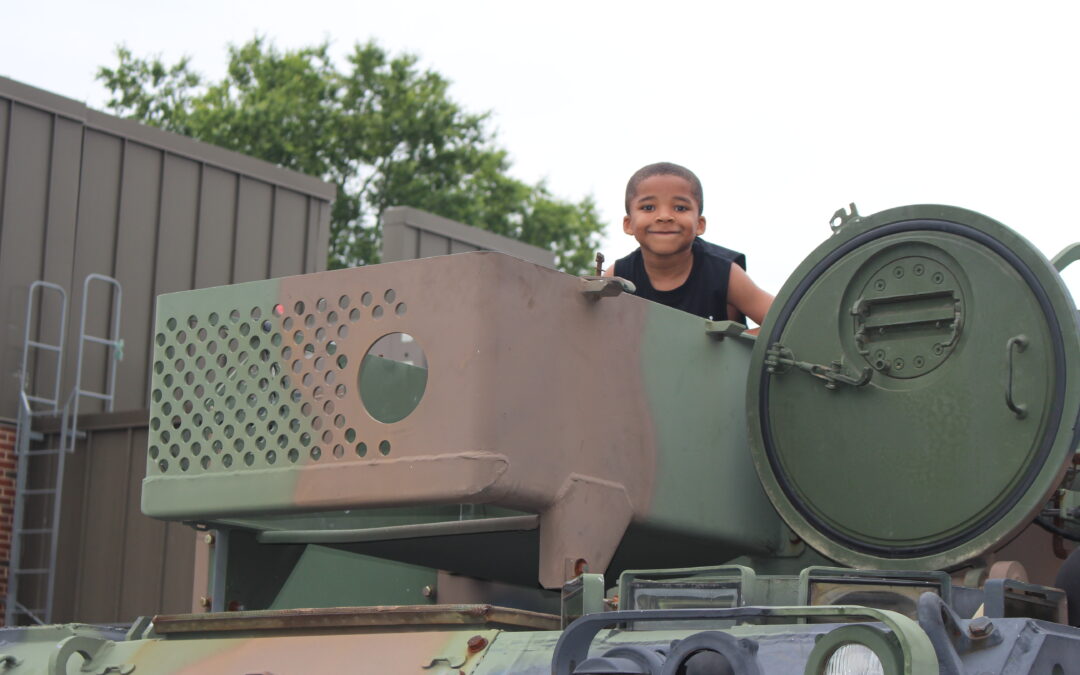April is an important month for me and my family. Not only is it National Sexual Awareness Month, it’s also the Month of the Military Child. Dedicated to recognizing the sacrifices and challenges that children of military families face, we’re celebrating and honoring military families and their children all month long.
As a lifelong advocate for women and children, this month reminds me of just how much support our military brothers and sisters, and their children, need. It takes a village to help support any family–and this is especially true for military families.
The History Behind the ‘Month of the Military Child’
Established in 1986 by the Department of Defense to recognize and show appreciation for military children’s sacrifices, the Month of the Military Child has become a month-long celebration of resiliency, strength, and courage.
Military Families Struggle to Find the Balance
According to a National Military Family Association report, there are over 2 million military children in the United States today, with approximately 80% experiencing at least one deployment of a parent.
The stresses of military life can have a significant impact on the well-being and development of military children, including:
- Frequent moves: Military families often move every two to three years, which can be difficult for children who must leave behind friends, teachers, and familiar surroundings. Changes in living environments may trigger stress and anxiety for military children and cause difficulties finding and keeping friends.
- Separation from parents: Deployments can last for months or even years; during that time, children may struggle with feelings of loneliness and anxiety. Saying goodbye to parents leaving for deployments can be confusing and overwhelming for children.
- Changes in schools: Frequent moves may mean changes in schools, which can disrupt a child’s education and social life.
- Financial strains: Military families may face financial strains due to the cost of moving, healthcare expenses, and other factors.
- Mental health concerns: Military children may experience high stress and anxiety levels, leading to mental health concerns such as depression and post-traumatic stress disorder, or PTSD.
Because of these unique challenges, military children and their families often need additional emotional support.
Giving Military Children and Their Families a Helping Hand
Military children may need extra care and attention to help them navigate the challenges of their unique living experience and better manage a lifestyle so different from their peers.
Support from military family resource centers, counseling services, and educational resources can all benefit military families. Additionally, it is important for military families to have a strong support network—both within the military community and in their civilian lives.
By providing children in the military with the support and resources they need, we can help them to thrive despite the obstacles they face. This benefits the individual child and family and strengthens our military by ensuring that our service members can focus on their duties—without worrying about the well-being of their children.
Support and Resource Options for Military Families and Their Children
There are several ways civilians can help support military families in their communities. Showing you care, offering help and support, and donating your time can make a huge difference in military children’s and their parents’ lives.
A few ways you and your family can help military children in your community include:
- Volunteer with organizations that support military families. Many organizations—like the USO, Operation Homefront, and Military Child Education Coalition—offer programs and services for military children and their families. Volunteering with these organizations can directly support military families and help build community connections.
- Reach out to military children. Write thank-you notes, create care packages, or simply say “thank you” to military children and their families for their service and sacrifices. These gestures go a long way in showing support and gratitude.
- Look for ways to help with daily tasks. Military families often face unique challenges that can make daily tasks much more difficult. Offering to help with grocery shopping, yard work, or childcare can provide much-needed support and relief for military parents and their children.
- Educate yourself and others about the challenges of military life. Understanding the experiences of military families can help you better support them. Read books, watch documentaries, or attend events focusing on military life to learn more.
- Support military children in schools. Military children may find school life particularly challenging. Adjusting to new environments, teachers, and fellow students is challenging. School staff can help by providing tutoring or counseling services and creating and fostering a welcoming and inclusive environment.
The following organizations also offer further resources and support for military children and their families:
- Military OneSource: This program provides various resources and support services to military families, including counseling, financial assistance, and education resources.
- National Military Family Association: This organization provides advocacy, support, and resources to military families.
- Operation Homefront: This organization provides financial assistance and support to military families, including emergency financial assistance, transitional housing, and other services.
- Military Child Education Coalition: This organization provides educational resources and support services to military families, including resources on transitioning to new schools and education programs for military children.
The Month of the Military Child is an important time to recognize the sacrifices and challenges that military children face—and honor their resiliency and strength. By taking these steps and supporting military children and their families, we can help them thrive and succeed in all aspects of their lives.
If If you’d like to learn more about my involvement in causes supporting children and the military, advocacy for domestic and sexual abuse survivors, or my new book (“War at Home”), please don’t hesitate to contact me directly at Jakia@jmlindley.com.


